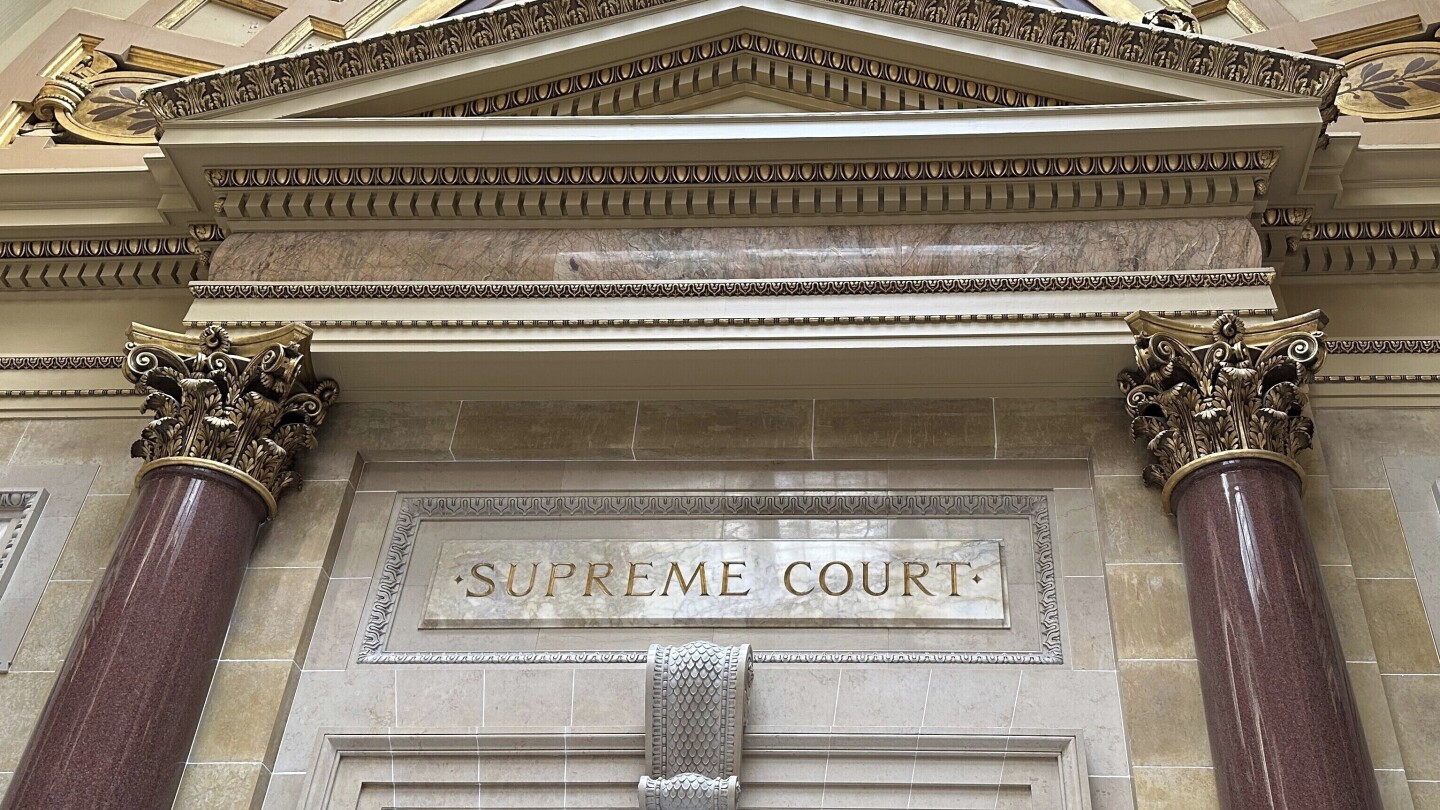The Wisconsin Supreme Court will hear a challenge to Democratic Gov. Tony Evers’ partial veto that locked in a school funding increase for the next 400 years, the justices announced Monday.
The Wisconsin Manufacturers & Commerce Litigation Center filed a lawsuit in April arguing the governor exceeded his authority. The group asked the high court to strike down the veto without waiting for the case to go through lower courts.
The court issued an order Monday afternoon saying it would take the case. The justices didn’t elaborate beyond setting a briefing schedule.
At issue is a partial veto Evers made in the state budget in July 2023 that increased revenue public schools can raise per student by $325 annually until 2425. Evers took language that originally applied the $325 increase for the 2023-24 and 2024-25 school years and vetoed the “20” and the hyphen to make the end date 2425, more than four centuries from now.



At first, I was like “How the fuck is the court gettinginvolved in a veto?” but then I read the rest and it makes perfect sense. That’s not how vetoes work. Otherwise, you’d have governors being like “This bill prov
idesfunding for some boring ass normal shitthateveryone agrees, includingthedumbassGovernorpreserveshistoricalsites,also is in thebestinterest of thegoverned, andrepresents the will of all citizens.”I’m not sure why the rush, though. They have several hundred years to go through the courts in normal fashion.
I don’t know.
ConnecticutWisconsin might have a different form of the veto that permits something other than “reject an entire bill or accept”.The federal government only lets the President veto the whole thing or not.
But it looks like most state governments give some form of partial veto, which gives the governor a lot more power.
https://en.wikipedia.org/wiki/Line-item_veto_in_the_United_States
While
ConnecticutWisconsin probably didn’t intend to permit this particular use, maybe there’s some loophole in the constitution that permits for it.EDIT: deleted, had somehow read the thing as “Connecticut”. Connecticut’s state constitution is explicit that partial vetoes must be of distinct items
EDIT2:
Apparently Wisconsin’s constitution doesn’t explicitly say that the vetoed part has to be a distinct item, the way that Connecticut’s does.
https://docs.legis.wisconsin.gov/constitution/wi/000231/000025
So…I dunno. Maybe the Wisconsin Supreme Court will buy it, say that maybe it was a mistake in writing the constitution, but as-written, he can do that. Or maybe they’re gonna say that it’s an invalid interpretation of the constitution.
If they say that it’s valid, I kind of suspect that Wisconsin’s gonna amend their constitution so that governors can’t pull that stunt any more.
EDIT3: Apparently the governor in question had been a teacher prior to being a governor.
Line item vetoes are one thing (which I oppose, but can understand).
The veto in question turns “2024-25” into “2425”
Looking the the Wisconsin constitution, there seems to be 2 relevant sections:
The first is the authority for partial vetoes.
In my opinion, this already does not authorize, the type of creative vetoing the governor tried.
However, the constitution goes on to clarify:
It would take an obtusely literal reading of these provisions to allow for striking individual digits and puncuation marks to create new numbers.
https://docs.legis.wisconsin.gov/constitution/wi_unannotated
Do we have a original textualist group in Wisconsin? Otherwise I have trouble thinking a governor would expect this to actually fly. Is this a contrived case to get this potential loophole to court to close it? Or am I too optimistic about governer thought processes?
iirc it was a “fuck you” to the other party because of their reluctance to provide school funding. I doubt the governor expected it to stay for the next few hundred years.
Didn’t John Oliver do an episode about this exact kind of veto?